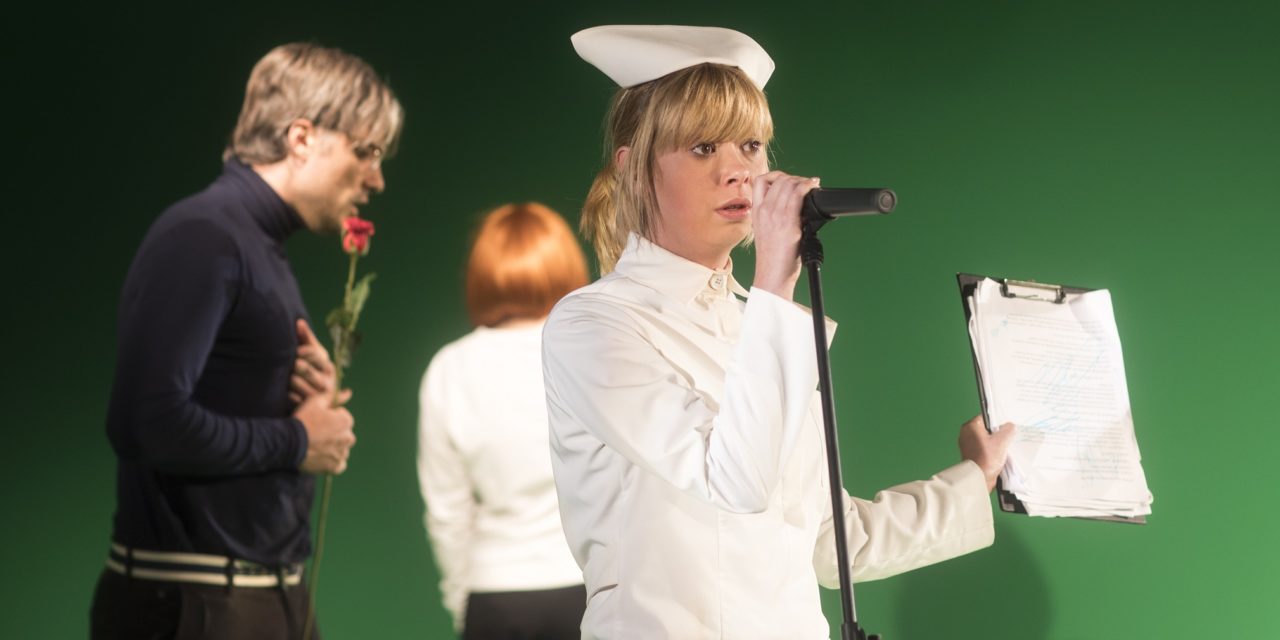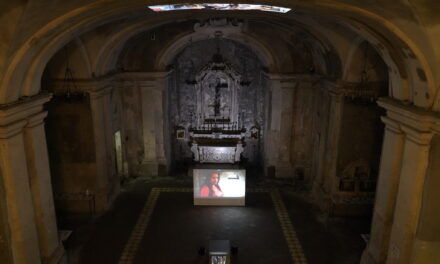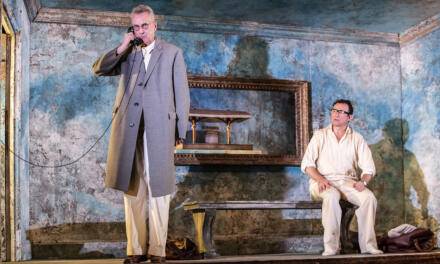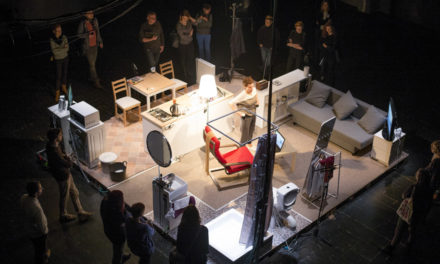Delhi Dance by Ivan Vyrypaev; directed by Galin Stoev; set design by Nikola Toromanov; costumes by Elitsa Georgieva; music by Emilian Gatsov-Elbi; Cast: Vladimir Karamazov, Elena Telbis, Radena Valkanova, Radina Kardzhilova, Svetlana Yancheva, Sofia Bobcheva; Production of National Theatre Ivan Vazov, Bulgaria
Delegated producer is the Théâtre National de Toulouse Midi-Pyrenéés, France.
A title such as Delhi Dance may mislead. It has the flavor of the East and may sound as a promise for a journey towards a distant place, exotic and mysterious. It turns out, however, that there is no journey at all and the play’s action is nailed in one of the most unattractive spaces imaginable–the waiting room for visitors of a town hospital. It is a neutral place of no particular features, universally recognizable through the sterile cleanliness and the formality of communication, through the heavy air of long wait, whispers and stifled sighs. It is a place for transition–no one likes to stay there for long. And it is exactly here where for seven times in a row the characters of the play stumble upon each other: a famous dancer, her mother, their friend, the dancer’s lover, his fiancée. Seven times someone from them dies while the nurse interferes to take care of documentation and to serve as an ear for the outpouring of their grief.
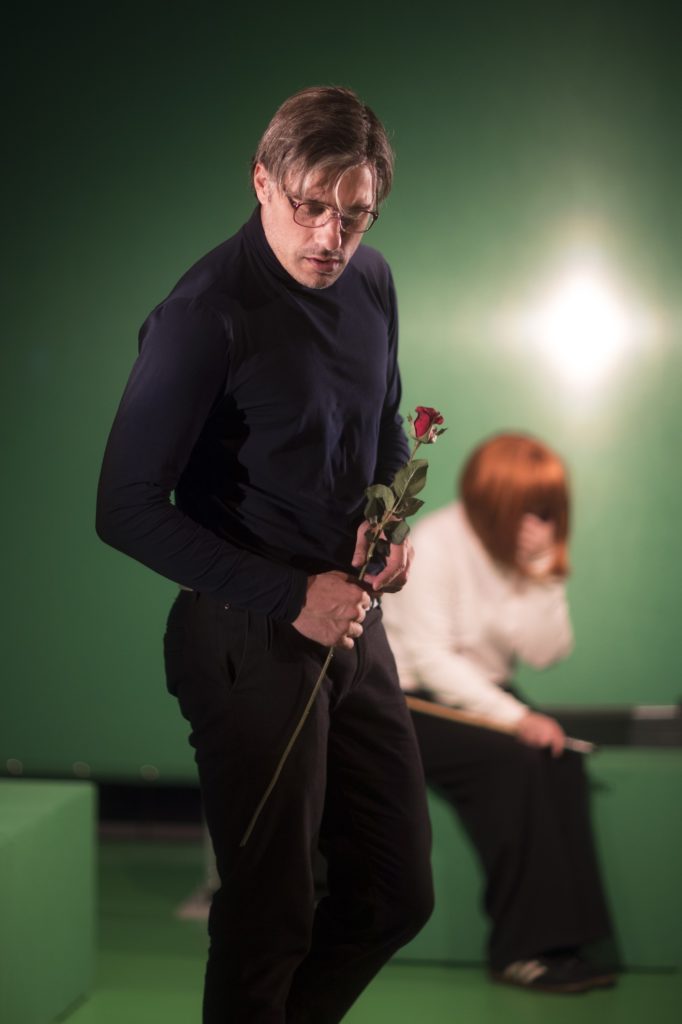
Delhi Dance by Ivan Vyrypaev, dir. Galin Stoev, National Theatre Ivan Vazov, Bulgaria; photo: G. Damyanova
Maybe such a plot sounds weird, but this has always been the case with Poland-based Russian playwright Ivan Vyrypaev–one of the most original and idiosyncratic contemporary authors. He constructs his plays from bits of dreams, songs and parables and every seemingly realistic situation serves simply as a corridor for metaphysical contemplation. His plays have been enjoying international recognition, while in Bulgaria, they have been introduced mainly through the stagings of two of the country’s leading theatre directors: Galin Stoev (who staged Archaeology Of Dreaming after the play Dreams and Oxygen) and Javor Gardev (who staged Valentine’s Day and The Drunks.) Delhi Dance is a play from 2009 after which Ivan Vyrypaev himself has made a film of the same name. From all his plays, which I know, I have liked Delhi Dance the most. It again employs an original and unusual dramaturgic structure–it consists of seven miniatures with identical characters and it is rich in repeated leitmotifs, which converge and expand as in a piece of music. It is a text which unites most of the big themes explored by Viripaev in his own unique way, which paradoxically connects humor and absurdity with gravity, standing almost on the brink of religious devotion. Vyrypaev manages to shape into dramatic play some of the free-floating “new age” philosophy ideas and no wonder, that in an interview he has shared that one his favorite books is Eckhart Tolle’s The Power Of Now. Once again he invites the spectators not simply to observe a dramatic plot, which tells of love and loss, but to gaze deep inside themselves. In Delhi Dance he asks them to hear their own hearts.
Bulgaria’s biggest stage at the National Theatre “Ivan Vazov,” where the production premiered in December 2017, seems too huge for something so intimate. Yet Galin Stoev’s artistry and craft as an experienced director have left their own distinct mark: it is a production which keeps a good balance between the spectacular and the comic on one side, and the intense and the dramatic on the other. It is a highly visual show whose set consists mainly of huge green screens for CGI effects. The scenes are being constantly captured by cameras from different angles and transferred live on the screens through close-ups of faces and added imagery. Thus, at times, the action unfolds on two levels: as a theatrical play and as a simultaneously generated cinematographic visualization. It is a predominantly female play with complex and challenging roles and the cast gathers some of the most distinguished Bulgarian actresses from different generations–Svetlana Yancheva (Alina Pavlovna), Radena Valkanova (The Middle-Aged Woman), Radina Kardzhilova (Ekaterina), Sofia Bobcheva (The Nurse) and Elena Telbis (The Wife). They are accompanied by the charismatic Vladimir Karamazov for whom the role of the frustrated and guilt-ridden Andrey offers a chance to step out of the “sex symbol” stereotype and explore his dramatic power and vulnerability.
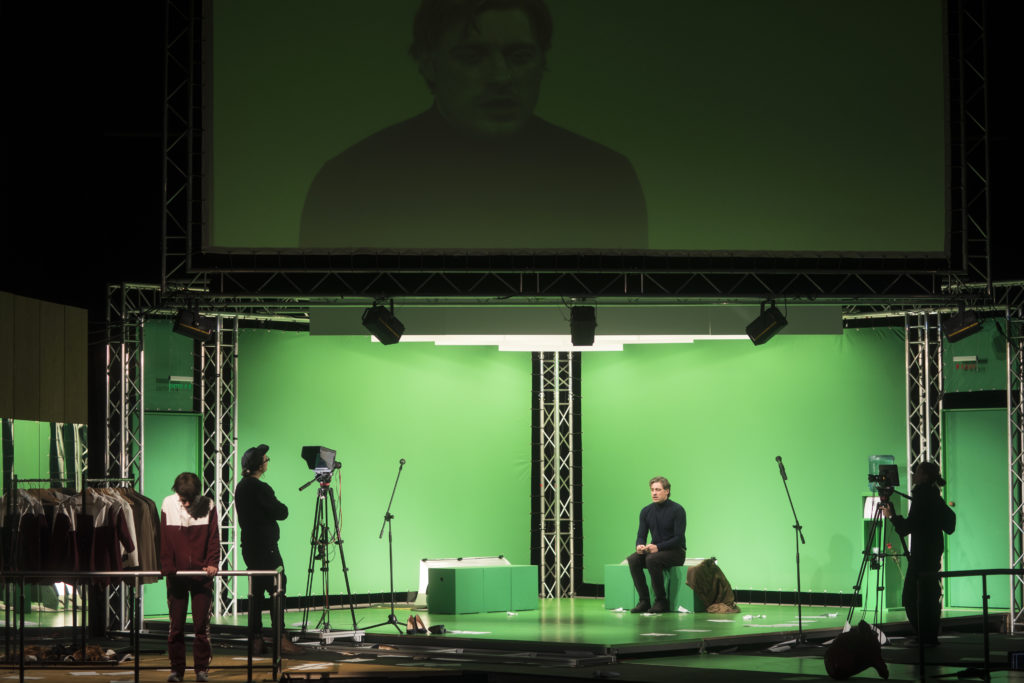
Delhi Dance by Ivan Vyrypaev, dir. Galin Stoev, National Theatre Ivan Vazov, Bulgaria; photo: G. Damyanova
The biggest challenge to the show most definitely lies in the tensions between the spectacular and the intimate, between the joy of role-playing and the need for simplicity and authenticity of presence. Only time will show whether these tensions will manage to connect or disconnect with the audience.
This post was written by the author in their personal capacity.The opinions expressed in this article are the author’s own and do not reflect the view of The Theatre Times, their staff or collaborators.
This post was written by Asen Terziev.
The views expressed here belong to the author and do not necessarily reflect our views and opinions.

